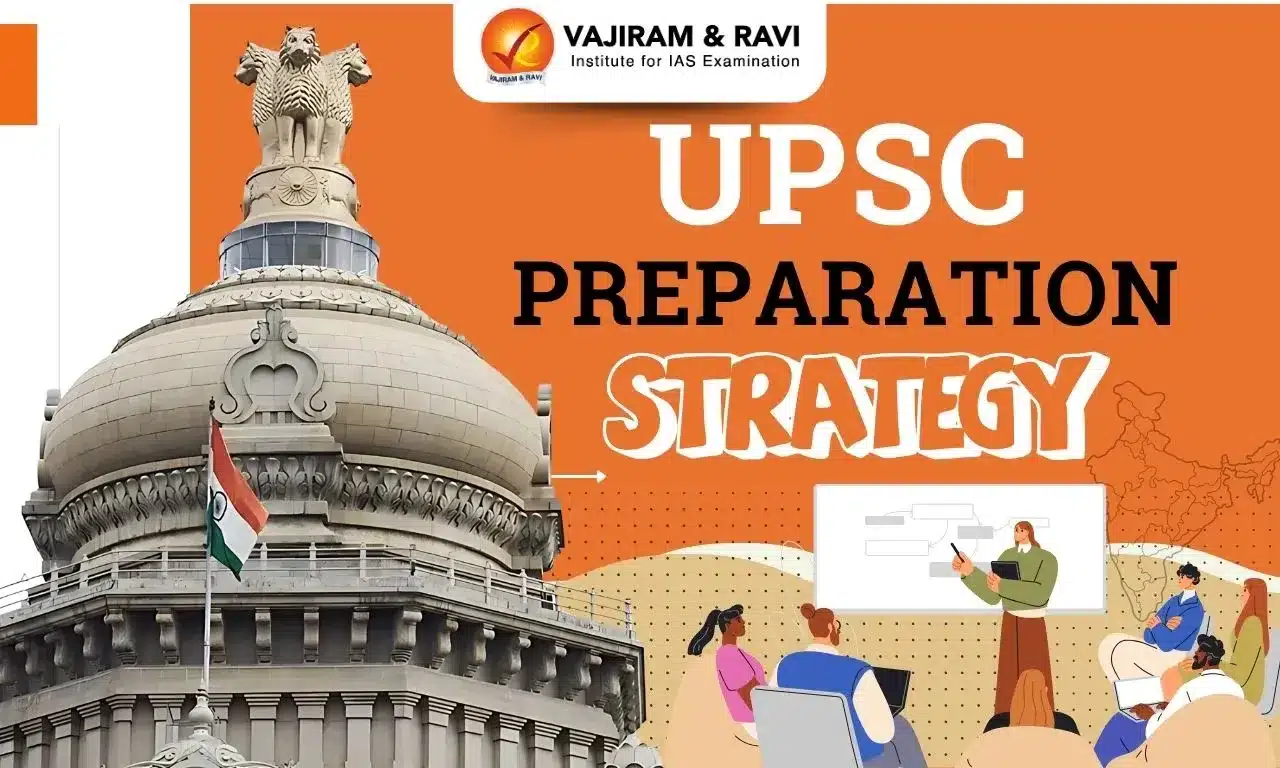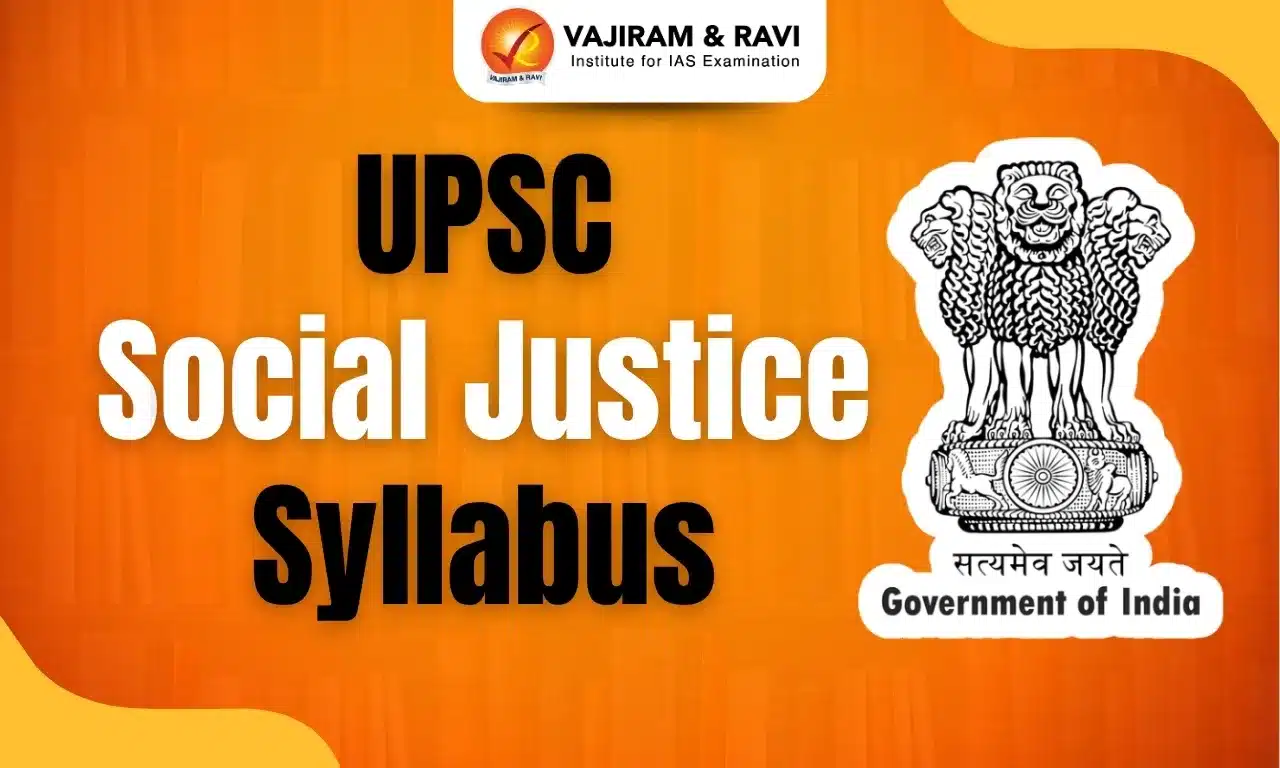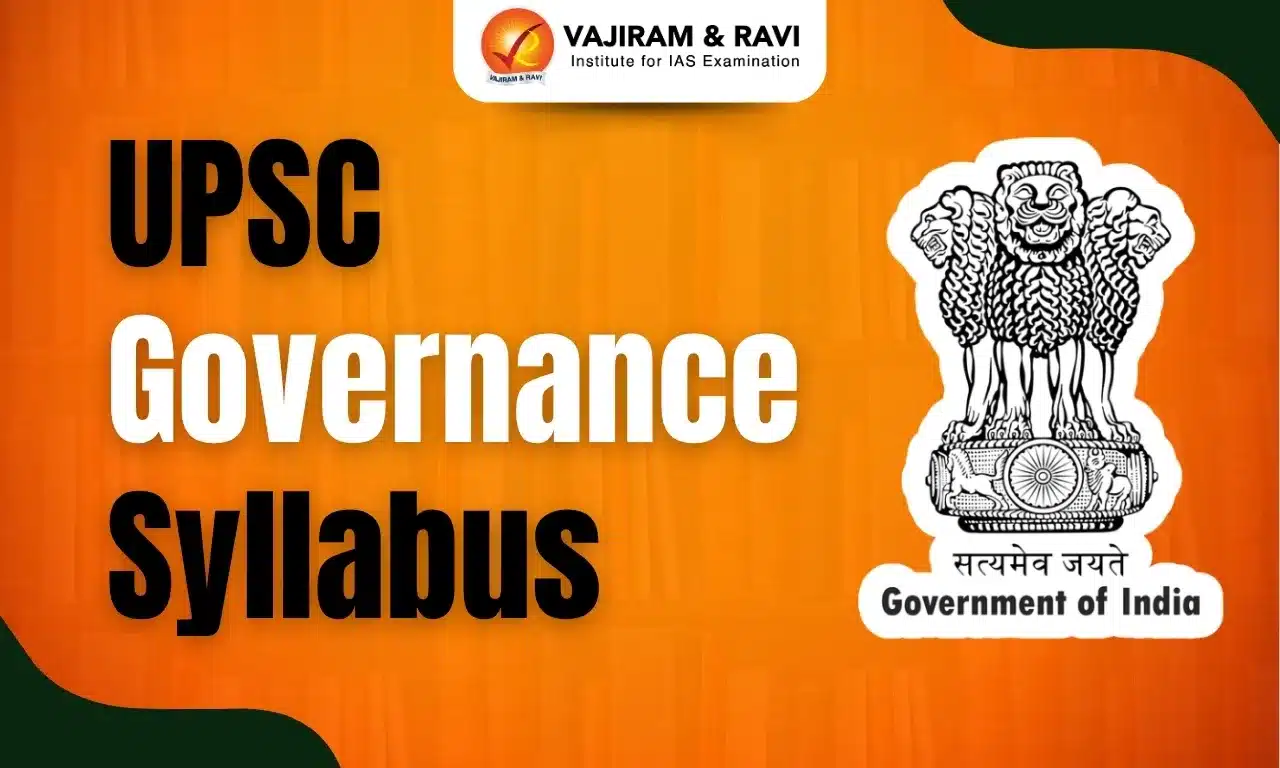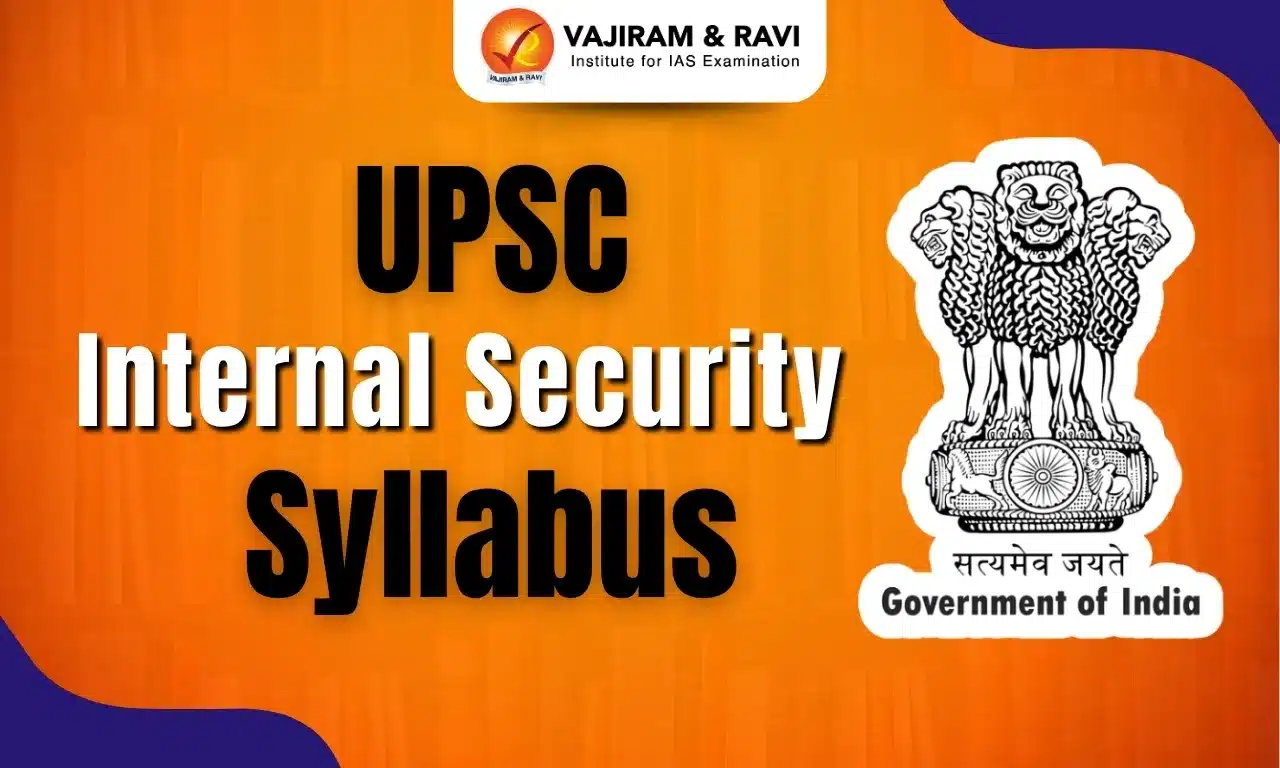Preparing for the UPSC Civil Services Exam can be a daunting task, but with the right approach, dedication, and strategic planning, it is possible to achieve your goal of becoming a civil servant. UPSC preparation involves forming a well-structured study plan, consistent effort, and a focused approach to succeed in the highly competitive Civil Services Examination.
The UPSC Exam is one of the most competitive exams in India. It is the gateway to a career in the Indian Administrative Service, the Indian Foreign Service, and other prestigious civil services. It is a long and challenging journey, but it is possible to succeed if you are willing to put in the hard work and dedication. This article gives you a subject-wise UPSC preparation strategy for Prelims, Mains, and Interview.
13 Tips to Prepare For UPSC 2025 in 6 Months
To maximise your chances of success in the UPSC CSE exam, adopting effective strategies is crucial. To begin with, understanding how to prepare for UPSC involves breaking down the preparation process into manageable steps, which are listed below:
- Start your preparation at least a year before the Prelims exam.
- Go through the syllabus of both the Prelims and Mains exams.
- Analyse the past few years’ question papers of both Prelims and Mains.
- Start reading a newspaper regularly and make short notes based on relevant articles.
- Read the basic NCERT books and then go through the UPSC Syllabus relevant Textbooks.
- Make short notes in whichever way you feel comfortable, either online or in hard copy.
- Make a timeline of objectives to be achieved, both long-term and daily.
- If you are attending coaching, attend classes regularly and revise the content after class.
- Make use of the internet and social media for your preparation carefully.
- Start learning the basics of answer writing.
- Join a Test Series for both Prelims and Mains. It will help you learn about your strengths and weaknesses.
- Form discussion/answer writing groups to help each other.
- Revise regularly the content you have been reading at least on a weekly basis.
Read: Last 1 Month Preparation for UPSC Prelims 2025
Subject-Wise UPSC Preparation Strategy
The UPSC Syllabus is very vast, and the General Studies subjects play an important role in the UPSC preparation. Here is step-by-step guidance for different subjects on how to prepare for UPSC strategically:
| History |
|
| Economics |
|
| Geography |
|
| Indian Polity |
|
| Art and Culture |
|
| Science and Technology |
|
| Environment and Ecology |
|
How to Prepare for UPSC Interview?
Preparing for the UPSC interview, also known as the Personality Test, is a crucial step in the UPSC Civil Services Examination process. Here are some tips on how to prepare effectively for the UPSC interview:
Understand the Interview Format:
- The UPSC interview is designed to assess your personality, leadership qualities, and analytical ability.
- It is not a retest of your knowledge; the interview panel has already seen your written exam scores.
- The interview usually lasts about 20-30 minutes, during which you will be asked questions about your background, hobbies, current affairs, and your DAF.
Review Your DAF Thoroughly:
- The DAF is a critical document that provides the interview panel with information about your educational background, work experience, hobbies, and more.
- Be prepared to answer questions related to your DAF, so review it carefully.
Current Affairs and General Knowledge:
- Stay updated with current affairs, especially those related to your optional subject and your home state.
- Read newspapers, magazines, and watch news programs regularly.
Develop Clear Communication Skills:
- Practise speaking confidently and clearly.
- Pay attention to your body language and maintain eye contact with the panel.
- Be polite and respectful while answering questions.
Interview Etiquette:
- Dress appropriately in formal attire.
- Be punctual; arrive at the venue well in advance.
- Greet the panel politely, and wait for them to invite you to sit.
- Maintain a positive attitude throughout the interview.
Prepare for Common Questions:
- Be prepared to answer questions about your strengths, weaknesses, achievements, failures, and your reasons for choosing the civil services.
- Have a well-thought-out answer for the question “Tell me about yourself.”
Optional Subject Knowledge:
- Brush up on your knowledge related to your optional subject and be prepared for questions in that area.
Stay Calm and Composed:
- It’s normal to feel nervous before an interview, but try to stay calm and composed.
- Take a deep breath if you feel overwhelmed and listen carefully to the panel’s questions.
- Be Yourself: The interview panel is interested in getting to know you as a person, so be authentic and true to yourself
How to Prepare for UPSC Exam at Home?
Preparing for the UPSC Civil Services Examination at home involves a systematic approach. Begin by understanding the exam pattern and syllabus.
- Create a well-structured study plan, allocating time to each subject.
- Gather essential study materials, including textbooks and previous years’ question papers.
- Start with NCERT books for foundational knowledge and clarity.
- Stay updated with current affairs through newspapers and magazines.
- Solve previous years’ papers and take mock tests for self-assessment.
- Practise daily answer writing, focusing on structure and clarity for the UPSC Main Examination. Regularly revise topics, maintain a healthy lifestyle, and stay motivated.
- Seek guidance when needed. Discipline, consistency, and effective time management are key to succeeding in UPSC exam preparation from home.
UPSC Preparation Strategy After 12th
Starting your UPSC CSE preparation after completing class 12th is an excellent decision, and it provides you with ample time to build a strong foundation for the exam. Here’s a strategy to begin your UPSC preparation after 12th:
- Choose Your Graduation Stream Wisely: Select a graduation program that aligns with your interests and strengths, as well as with the UPSC exam’s requirements. Subjects like history, political science, sociology, economics, and public administration are popular choices, but any stream can be suitable if you are passionate about it.
- Build a Strong Foundation: Focus on developing a deep understanding of your chosen subjects during your graduation. This will help you in both the Preliminary and Main Examinations.
- Read NCERT textbooks for your graduation subjects, as well as for subjects like geography, economics, and science, to build a strong base.
- Build a habit of reading Current Affairs daily: Start reading newspapers like The Hindu and The Indian Express and magazines like Yojana and Kurukshetra to stay updated with current affairs and issues. Maintain a diary or digital notes to record important current events and developments.
- Understand the UPSC Syllabus: Familiarise yourself with the syllabus and the UPSC exam pattern. This will help you know what to focus on during your preparation.
- Join a Coaching Institute: Consider joining a reputable coaching institute if you feel the need for structured guidance and study materials. You can either opt for a 2 phase General Studies Programme or a General Studies Programme that helps you crack all competitive exams. While coaching is not mandatory, it can provide valuable insights and resources.
- Develop Reading Habits: Cultivate a habit of reading newspapers, Monthly Current Affairs Magazines, Yojana Magazine, Kurukshetra Magazine, Frontline, etc.
- Optional Subject Selection: Research and select your optional subject wisely. Choose a subject you are passionate about and have a good understanding of. Start studying your optional subject gradually alongside your graduation coursework.
- Practice Writing Skills: Begin practising daily answer writing. Write essays, short answers, and summaries of articles to improve your writing skills. Review your writing critically and work on clarity, structure, and content.
- Time Management: Create a study schedule that balances your graduation coursework and UPSC preparation. Allocate specific time slots for each subject and adhere to the schedule.
- Stay Healthy and Relaxed: Maintain a healthy lifestyle with regular exercise and a balanced diet. Take short breaks during study sessions to stay refreshed. Divide your study time into short breaks, like 3-4 hours for one sitting instead of a direct stretch of 6-7 hours.
- Stay Updated with Official UPSC Notifications: Keep an eye on UPSC’s official notifications and announcements regarding the examination schedule, changes in syllabus, and other updates.
- Starting your UPSC preparation after class 12th gives you a head start, but remember that consistency, discipline, and a well-structured approach are key to success in this highly competitive examination. As you progress through your graduation and post-graduation, continue to build on the foundation you’ve laid, and aim for comprehensive preparation in the years leading up to the UPSC exam.
Best Books for UPSC Preparation
While there is no one-size-fits-all answer for the best books, here’s a list of recommended books for different subjects and stages of the UPSC exam:
General Studies (Prelims and Mains):
- “Indian Polity” by M. Laxmikanth: A comprehensive book on Indian polity and the constitution.
- “Certificate Physical and Human Geography” by Goh Cheng Leong: For geography concepts.
- “India’s Struggle for Independence” by Bipan Chandra: Covers the history of the Indian independence movement.
- “Indian Economy” by Ramesh Singh: Provides a good overview of economic concepts.
- “General Science” by Lucent Publications: For basic science concepts.
- “Environment and Ecology” by Shankar IAS Academy: For environmental studies.
- “Economic Survey” and “Budget” (available online): Important government documents.
- NCERT textbooks (Class 6 to 12): Excellent for building a foundational understanding of various subjects.
General Studies (Mains):
- “India After Gandhi” by Ramachandra Guha: A detailed look at post-independence India.
- “Administrative Reforms in India” by M. Laxmikanth: Covers the Indian administration system.
- “Indian Art and Culture” by Nitin Singhania: For the art and culture section.
- “Social Problems in India” by Ram Ahuja: Discusses various social issues.
- “Governance in India” by M. Laxmikanth: Important for GS Paper 2.
- “Challenges to Internal Security of India” by Ashok Kumar: Covers internal security issues.
Optional Subjects:
For optional subjects preparation, choose books that are recommended by our Expert faculty. The lists of books are available on our websites. The choice of optional subject determines the specific books you’ll need.
Current Affairs:
- Newspapers: The Hindu, The Indian Express, or any other reputed daily newspaper.
- Magazines: Yojana, Kurukshetra, Economic and Political Weekly.
- Annual Publications: “India Year Book” by Publications Division, Government of India, and “Manorama Yearbook.”
Essay Writing:
- “151 Essays for UPSC Mains” by Disha Publications.
- Practice essay writing regularly to develop your writing skills.
Additional Reference Books (for in-depth knowledge):
- “Indian Economy” by Ramesh Singh (for Mains and in-depth understanding).
- “Indian Society” by Ram Ahuja (for Mains).
- “Geography of India” by Majid Husain (for Mains and detailed geography concepts).
- “World History” by Norman Lowe (for Mains Paper 1).
Remember that the key to UPSC preparation is not just the number of books you read but how effectively you understand and retain the material.
Best Youtube Channel for UPSC Preparation
In the UPSC preparation journey, Current Affairs proves to be a reliable and crucial ally. Mastering this aspect can significantly contribute to winning half the battle! In the modern era of online learning, YouTube has emerged as a prominent and indispensable platform, playing a pivotal role in education.
The Vajiram & Ravi YouTube channel is for candidates seeking that extra edge or a newcomer exploring the realm of civil services. The channel is a one-stop destination for Daily Newspaper Analysis, Monthly Current Affairs, Economic Surveys, Webinars held by our expert Faculty Members and Interviews by UPSC CSE Toppers.
Timetable for UPSC Preparation 2025
A UPSC timetable is more than just a schedule; it’s your ally in combating stress and procrastination. A properly designed timetable can enhance productivity, boost confidence, and make the daunting task of UPSC preparation seem manageable.
If you are preparing for UPSC 2025, don’t forget to follow a timetable that will give you a direction for month-wise preparation strategy for UPSC CSE.
| Month | GS-Prelims | GS-Mains | Optional |
| June ’24 – October ’24 | NCERTs and Basic Standard books – one reading of everything | Read books common to prelims & mains | Start preparation of Optional Paper |
| October ’24 – February ’25 | Revise the Basic Standard Books and start practising mock prelims tests | Cover rest of the syllabus of main exam and start answer writing as well as mock prelims tests | Revision and practice of optional subject |
| March ’25 – May ’25 | Exclusively for prelims (both GS and CSAT) and regular prelims test | – | – |
| June ’25 – Sep ’25 | – | Exclusively for Mains and regular answer writing as well as mock test for mains exam | Revision and mock tests. |
| Other Related Posts of UPSC 2025 | |
Last updated on July, 2025
→ UPSC Notification 2025 was released on 22nd January 2025.
→ UPSC Prelims Result 2025 is out now for the CSE held on 25 May 2025.
→ UPSC Prelims Question Paper 2025 and Unofficial Prelims Answer Key 2025 are available now.
→ UPSC Calendar 2026 is released on 15th May, 2025.
→ The UPSC Vacancy 2025 were released 1129, out of which 979 were for UPSC CSE and remaining 150 are for UPSC IFoS.
→ UPSC Mains 2025 will be conducted on 22nd August 2025.
→ UPSC Prelims 2026 will be conducted on 24th May, 2026 & UPSC Mains 2026 will be conducted on 21st August 2026.
→ The UPSC Selection Process is of 3 stages-Prelims, Mains and Interview.
→ UPSC Result 2024 is released with latest UPSC Marksheet 2024. Check Now!
→ UPSC Toppers List 2024 is released now. Shakti Dubey is UPSC AIR 1 2024 Topper.
→ Also check Best IAS Coaching in Delhi
How To Prepare For UPSC in 6 Months FAQs
Q1. When to Start Preparing for UPSC?+
Q2. How to Prepare for UPSC?+
Q3. How to Prepare for the UPSC CSAT Exam?+
Q4. How much time is required to prepare for IAS?+
Tags: How to Prepare for UPSC UPSC














